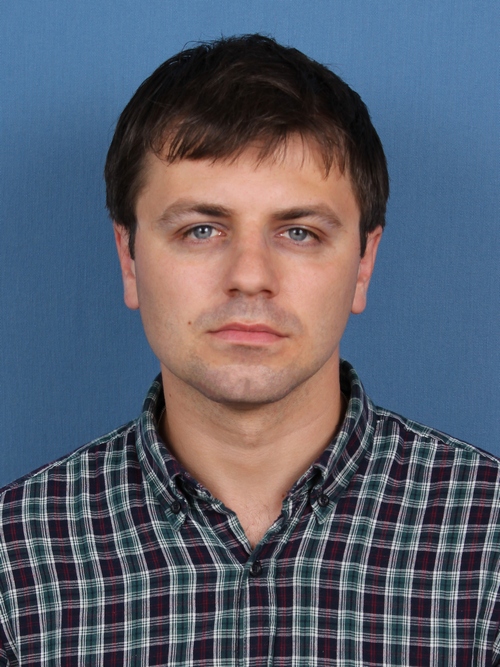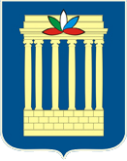Artur Olegovich Koroteyev: "I always knew that I wanted to do science"

The Best Young Scientist of the University title among academic staff with a PhD or a Doctor of Sciences degree was awarded to Artur Olegovich Koroteyev, an associate professor of the Department of Equipment and Technology of Welding Manufacture, Ph.D. in Engineering.
Artur Olegovich is the author of 55 publications and 12 patents.
We asked Artur Olegovich several questions about his scientific activities.
– What are you currently working on?
– At the moment I am engaged in research in the field of gas shielded arc welding, developing new methods and principles for forming the composition of shielding gas environment during welding, which helps improve characteristics of welded joints and reduce consumption of expensive components of gas mixtures, as well as apply welding materials produced domestically.
– Why are you interested in this particular topic?
– This topic is important as it is related to the challenges that enterprises face today. I have been involved in this research for about 9 years. I started to work in this direction when I was a 5th year student. This method is the most common welding method, and it is important to increase its efficiency.
– What other projects are you working on? What are your future goals?
– Currently we are working at additive technologies of layer-by-layer 3D build-up of metal products using welding technologies, low-power arc welding sources of heating, as well as using the cold metal transfer technology (CMT). This will allow us to create three dimensional metal products with properties that are not inferior to those that are manufactured in other ways, but with much more complex geometry and with substantial material savings. As part of the advanced research program of the Union State, which is to be approved in the near future, there is a sub-program called Additivity. The Department of Equipment and Technology of Welding Manufacture has made an application for carrying out a project in this direction, and if we succeed, it will be an important and challenging undertaking. Our Department is the head organization for welding and non-destructive testing at construction sites of the Belarusian Nuclear Power Plant. Aleksandr Grigorievich Lupachev, an associate professor and PhD in Engineering, and I are experts in nuclear and radiation safety with the right to issue quality assessment reports of work performed on the most important sites. We have evaluated the quality of welding of the main circulation pipe with the flange of the reactor vessel, etc. It is quite a challenging task that requires use of the scientific method. In addition, the Department is engaged in certification and technology development activities for almost all large enterprises of the Republic of Belarus. At present, new materials and steels are being used; as a rule, our enterprises are focused on using approaches and technologies of domestic production and are not always ready for that, therefore it is necessary to carry out different types of research. Besides, I am planning to write a dissertation to earn a Doctor of Sciences degree.
– How did you start your university career?
– The fact is that I always knew that I wanted to do science. When I was a student of Mogilev Regional Lyceum No. 3, we were encouraged and inspired to achieve challenging goals. In 2006, I entered the Belarusian-Russian University, the Department of Equipment and Technology of Welding Manufacture. In my first years as an undergraduate, I took part in city, republican and international competitions in Theoretical Mechanics and other subjects. In my 3rd year, when we started our specialized courses, I told Professor Valery Petrovich Berezienko, Doctor of Engineering, about my plans to get involved in research. It was very helpful. I joined the team who were carrying out research on resistance welding of coated steel. In that time Svetozar Nikolayevich Emelianov was working on his dissertation, and I began to take part in the work and helped in any way I could. It was quite a challenging experience for me: I spent a lot of time conducting experiments, formulating the research hypotheses and conclusions. All these things had a considerable influence on my worldview. After some time, I had to find my own topic and direction of research. Then Professor Valery Petrovich Kulikov, Doctor of Engineering, Head of the Department of Equipment and Technologies of Welding Manufacture, advised me to start my research in the field of arc welding. Although this is the most common method of welding, there were no other young specialists working in that direction at the Department at that time. On December 21, 2017, I defended my thesis on the topic ‘Technology of Arc Welding of Structural Steels with Two-Jet Coaxial Supply of Components of Shielding Gas Environment’. My research supervisor was Valery Petrovich Kulikov.
– What does teaching mean to you?
– I like teaching. I believe that teaching contributes to a personal growth and development. When I was an undergraduate, when I was planning to do science, I wasn’t thinking of becoming a teacher. If I had wanted to become a teacher, I would have gone to a pedagogical university. But now I feel comfortable, I like communicating with students. Although sometimes it is difficult, because they have completely different interests and it is not an easy task to get them interested in scientific research.
– What do you think are the most important personal characteristics of a modern researcher?
– I think modern researchers must be energetic; otherwise they will not achieve anything. They should not confine themselves to doing one kind of activity. For example, someone is interested in writing papers and that’s it. But the number of publications, in my opinion, is not an objective indicator of the ranking of a scientist. A scientist must be a multifaceted person. He or she should be interested not only in his/her major field of study, but also in related disciplines, because all major discoveries are now made at the intersection of disciplines. Non-standard solutions can be offered only by a person with a wide range of interests; if you work in a narrow direction, you will not be able to think broadly.
– What is the most interesting thing in your profession?
– Every day I don’t know what to expect. I may be wrong, but I like problems, because it is always very interesting to look for solutions. In general, I am never bored at work. I am interested not only in teaching. Working in this way, we can show our students real cases and problems that may arise in the workplace and that they will have to solve. Our active contractual activities with large enterprises give us the opportunity to accumulate knowledge and experience.
– Who do you look up to in your work and why? Who is your role model?
– I greatly appreciate the professionalism of my colleagues. Valery Petrovich Kulikov, for example. He is the person who has greatly influenced my career in science. He is a model of a supervisor capable of creating a unified, efficient, friendly team ready to solve the most difficult problems. I admire Aleksandr Grigorievich Lupachev for his competence and experience. We work closely together at Professional Development and Retraining Institute where we give lectures. Besides, we visit enterprises where he enjoys great respect. He can solve almost any problem. I must admit, I haven’t reached such a level of professionalism yet.
